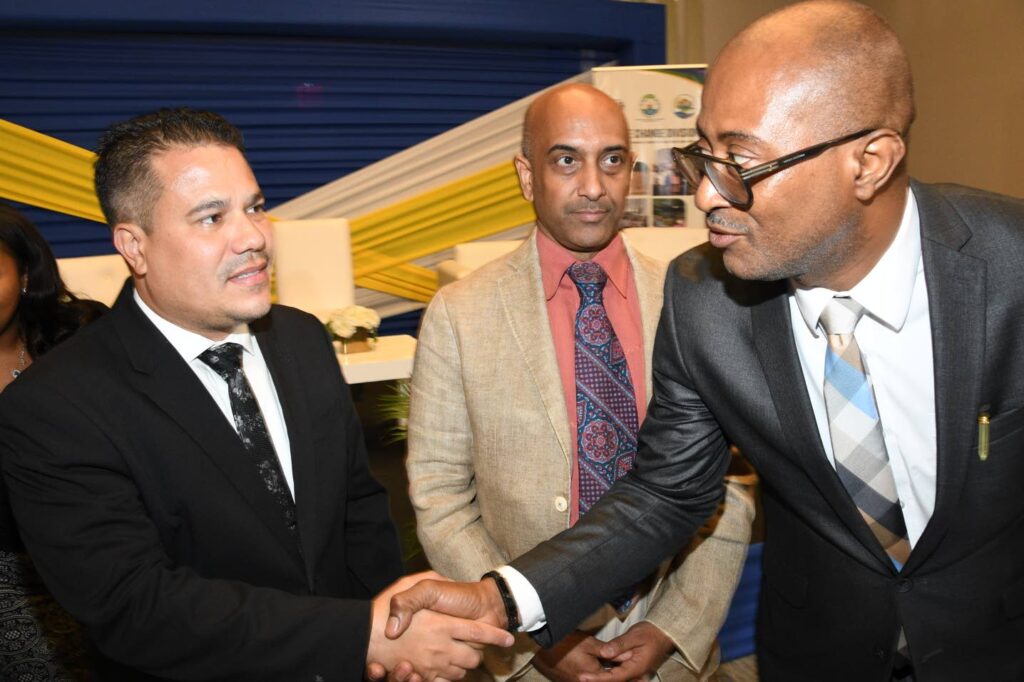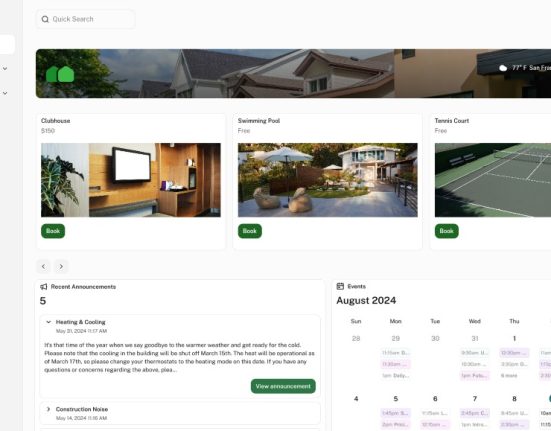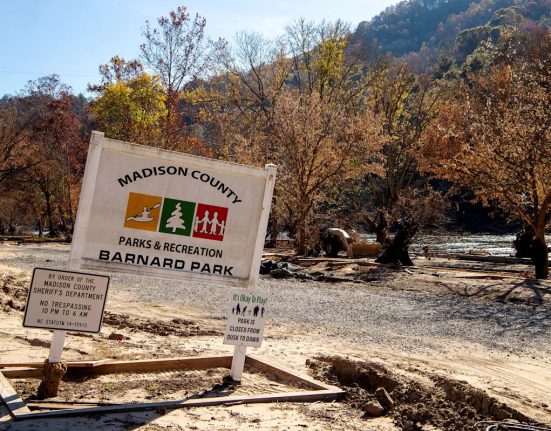Minister without portfolio in the Ministry of Economic Growth and Job Creation with responsibility for water, environment, climate change and the blue and green economies, Matthew Samuda (left) greets Dr Milton Clarke, environmental specialist at the Jamaica Social Investment Fund (JSIF), while Dr Kishan Khoday, UNDP resident representative for The Bahamas, Belize, Bermuda, Cayman Islands, Jamaica, and Turks and Caicos Islands (centre) looks on. Occasion was Jamaica’s National COP30 Consultation at AC Hotel Kingston on Tuesday.
LAST week it emerged there is growing concern that international lenders are retreating from their commitments to help increase funding for developing countries’ response to global warming.
Many Jamaicans, we suspect, missed the issue as their minds are concentrated on the looming general election, and both political parties are busy making promises to win votes. That is the nature of political contests, and climate change is not high on the totem pole for voters.
However, we regard it as extremely important. For, as we have consistently argued in this space, any failure on our part to mitigate the impacts of climate change will put at great risk our existence.
We are already experiencing some of those effects in the form of shifting weather patterns. Just three months ago minister without portfolio in the Ministry of Economic Growth and Job Creation, Mr Matthew Samuda reminded the nation that in February 2022 Jamaica experienced the worst drought in its recorded history. That was followed by the third-worst drought in our recorded history in February and March 2023.
He also told us that last year, in the same dry period, “we experienced the fourth-worst drought in our history, and within the same year we had the wettest November we have had in over 50 years”.
Readers will recall that last July, against traditional norms, Hurricane Beryl formed in the Caribbean — becoming the earliest Atlantic hurricane to reach Category Five intensity — and on her rampage across the region left severe damage in Barbados, St Vincent and the Grenadines, Grenada, Dominica, and Jamaica.
Added to the fact that hurricanes are increasing in intensity, scientists are revealing that climate change is contributing to sea level rise around the globe. Last month scientists at the National Aeronautics and Space Administration (NASA), on analysing satellite data, told us that the rate of annual sea level rise has more than doubled over the past 30 years — an increase of four inches since 1993.
In that same presentation, three months ago, Mr Samuda pointed out that 70 per cent of Jamaica’s population live within five kilometres of the sea. As such, “an inch or two inches sea level rise is particularly challenging”. We are talking here about adverse impacts on property, airports, roads, our coastline, agriculture, fisheries, health, forestry, and more.
Thankfully, the Government had the good sense to format a Climate Change Policy Framework which was approved in 2015. An integral component of that framework is the climate catastrophe bond issued in 2021 which provided insurance for four hurricane seasons.
Last May, then Finance Minister Dr Nigel Clarke announced that a second climate catastrophe bond was issued, covering hurricane seasons 2024 to 2027. So in the event that we are directly impacted by a storm system, we are covered. But that coverage relates only to hurricanes.
While Jamaica is already engaged in mitigation efforts, we, like other small island developing states (SIDS), remain vulnerable to global warming’s varied impacts. Building resilience to those impacts is costly. As such, it is important that we, and other SIDS, hold the major development banks and rich nations — who, to date, are most responsible for global warming — to their pledge to increase climate finance to US$300 billion annually by 2035.
Although that amount has already been declared as woefully inadequate, it can help. The COP30 conference scheduled for Brazil this November provides the perfect platform for that advocacy.







